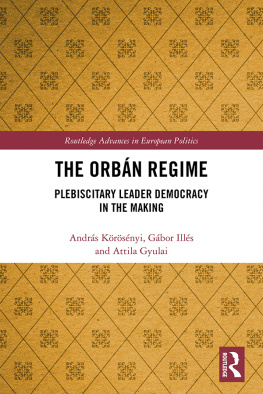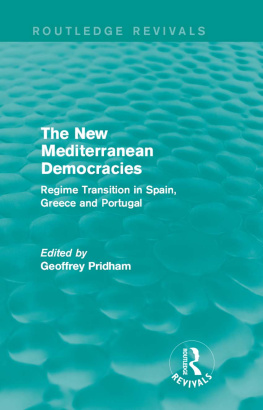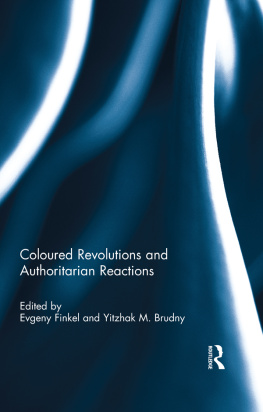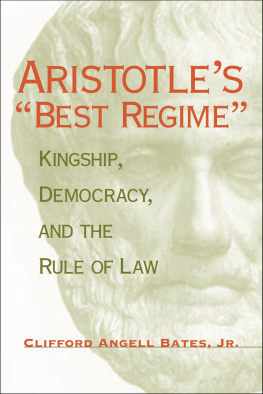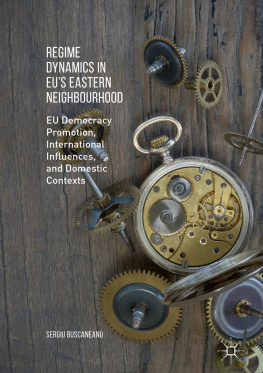The Orbn Regime
This book gives the first comprehensive and theoretically substantiated political science account of the Orbn regime in English.
It argues that Viktor Orbns regime-building and reconstructive leadership is more than just an example of hybridisation, a successful populist appeal or a backlash against the earlier neoliberal hegemony in Central Europe. It unfolds the major traits of the Orbn regime and argues that it provides a paradigmatic case of the Weberian model of plebiscitary leader democracy (PLD). Beyond explaining the backslide of liberal democracy in Hungary, the book aims at two additional contributions of wider significance. First, by applying the concept of PLD to the Hungarian case, it reveals that the authoritarian elements are products of an endogenous drive of modern mass democracy. Second, through the lens of PLD, the Orbn regime can be seen as an experimental lab of global trends like mediatisation and personalisation of politics, populist style, the deconsolidation of liberal democratic order, and what is often labelled post-truth politics.
This book will be of key interest both to scholars and students of Hungary, post-Communist and Central and Eastern European politics and to those interested in populism, democratisation and democratic deconsolidation as a broader trend in a variety of countries.
Andrs Krsnyi is a Senior Research Fellow at the Centre for Social Sciences, Etvs Lornd Research Network, and Professor and Head of the Political Science Doctoral School at Corvinus University of Budapest, Hungary.
Gbor Ills is an Assistant Lecturer at the Institute for Political Science, Faculty of Law, Etvs Lornd University, and Junior Research Fellow at the Centre for Social Sciences, Etvs Lornd Research Network, Budapest, Hungary.
Attila Gyulai is a Research Fellow at the Centre for Social Sciences, Etvs Lornd Research Network, and Research Fellow at the Research Institute for Politics and Government, National University of Public Service, Budapest, Hungary.
Routledge Advances in European Politics
External Energy Security in the European Union
Small Member States Perspective
Mat Mik
The Balkans on Trial
Justice vs. Realpolitik
Carole Hodge
Greece and Turkey in Conflict and Cooperation
From Europeanization to De-Europeanization
Edited by Alexis Heraclides and Gizem Aliolu akmak
Diversity of Patchwork Capitalism in Central and Eastern Europe
Edited by Ryszard Rapacki
The EU in Association Agreement Negotiations
Challenges to Complex Policy Coordination
Daniel Schade
Public Discourses and Attitudes in Greece during the Crisis
Framing the Role of the European Union, Germany and National Governments
Edited by Dimitris Katsikas
Relations between Immigration and Integration Policies in Europe
Challenges, Opportunities and Perspectives in Selected EU Member States
Edited by Maciej Duszczyk, Marta Pachocka, and Dominika Pszczkowska
The Orbn Regime
Plebiscitary Leader Democracy in the Making
Andrs Krsnyi, Gbor Ills, and Attila Gyulai
The Orbn Regime
Plebiscitary Leader Democracy in the Making
Andrs Krsnyi, Gbor Ills and Attila Gyulai
First published 2020
by Routledge
2 Park Square, Milton Park, Abingdon, Oxon OX14 4RN
and by Routledge
52 Vanderbilt Avenue, New York, NY 10017
Routledge is an imprint of the Taylor & Francis Group, an informa business
2020 Andrs Krsnyi, Gbor Ills and Attila Gyulai
The right of Andrs Krsnyi, Gbor Ills and Attila Gyulai to be identified as authors of this work has been asserted by them in accordance with sections 77 and 78 of the Copyright, Designs and Patents Act 1988.
All rights reserved. No part of this book may be reprinted or reproduced or utilised in any form or by any electronic, mechanical, or other means, now known or hereafter invented, including photocopying and recording, or in any information storage or retrieval system, without permission in writing from the publishers.
Trademark notice: Product or corporate names may be trademarks or registered trademarks, and are used only for identification and explanation without intent to infringe.
British Library Cataloguing in Publication Data
A catalogue record for this book is available from the British Library
Library of Congress Cataloging in Publication Data
A catalog record has been requested for this book
ISBN: 978-0-367-14790-7 (hbk)
ISBN: 978-0-429-05343-6 (ebk)
Typeset in Times New Roman
by Wearset Ltd, Boldon, Tyne and Wear
Contents
The research for this book was carried out and the manuscript was written at the Institute for Political Science, Centre for Social Sciences, Etvs Lornd Research Network in Budapest. The final form of our book owes a lot to those who took the time to offer valuable contributions and suggestions and to thoroughly criticise the manuscript, or parts of it: Attila Bartha, Istvn Benedek, Andrs Br-Nagy, Gbor Dobos, Szilvia Horvth, Luca Kristf, Mihly Laki, Gerg Medve-Blint, Rudolf Metz, Ivett Molnr, Flra Rencz, Dorottya Szikra, va Voszka, and Ben Worthy. We would also like to thank our colleagues at the Department of Democratic and Political Theory in the Institute for their helpful comments, and the two anonymous reviewers who provided helpful critical suggestions at the initial stage of our work. The usual disclaimer applies. We are grateful to Paul Barrett, who helped a lot in the language editing of the text and to our editors at Routledge: Andrew Taylor, who did a lot to get this book on track, and Sophie Iddamalgoda for her work in the production of the book.
We would also like to thank our families for their patience and support during the process of writing the book.
Our research was supported by a grant (number K 128139) from the National Office for Research, Development and Innovation (NKFIH).
The manuscript was closed at the end of November 2019.
Talking about the third wave of democratisation, some two decades ago Larry Diamond (2002) noted the unprecedented growth in the number of regimes that are neither clearly democratic nor conventionally authoritarian. Since Diamonds work, the literature on a halt or even a U-turn in Central European democratisation processes following the early 1990s has also grown rapidly (Jenne and Mudde 2012; Kornai 2015). Hungary, the object of our work, had been perceived as an example of successful democratisation in the post-Communist region for almost two decades. From 2010 onwards, however, Viktor Orbns premiership has dramatically changed this perception and the country has become an illustration of populism, illiberalism, and a drift towards authoritarian rule. It is not only the U-turn in Hungary that has become a surprising and shocking experience for political commentators and scholars of democratisation but also the robustness of the changes brought about by the Orbn regime. The speed, degree, and scope of changes accomplished during Orbns incumbency have concerned all three dimensions of politics, policy, and polity. In addition to them, the changes affected the political, through massive (re-)politicisation of previously non-political spheres of life by redrawing the borderline between state and society, the public and the private spheres.

